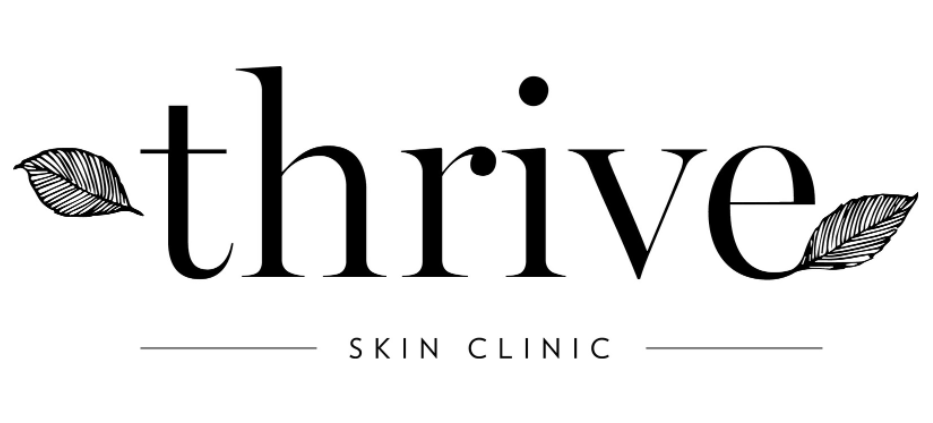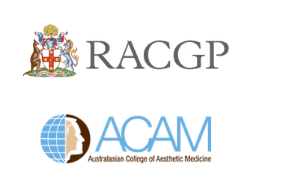Treating skin Concerns During Pregnancy & Breastfeeding - Advice from a GP Skin Doctor.
/Pregnancy and lactation are important times in a woman’s life, however, these milestones are also associated with many skin issues. Some women notice their skin glowing, while others are plagued with acne breakouts, sensitive skin and sallow complexion. In addition, pregnancy and breastfeeding is often a time of increased anxiety in regard to the safety of skincare and in-clinic treatments and the impact they may have on your growing baby.
Many women contact us regarding skin issues during pregnancy, due to the fact that I am a mum of 3 who has a special interest in women’s health. As such, if you come and have a skin treatment when you are pregnant or breastfeeding, you can feel confident that we will deliver a safe and effective treatment.
It’s important to remember that there is no blanket approach in medicine - every person has different concerns and issues. We invite all our clients to come in have a consultation with either our dermal therapist, registered nurse or doctor in order to undertake a formal skin assessment and work on an individualised treatment plan.
What you should avoid during pregnancy?
In terms of risks in pregnancy, it is important to avoid anything that could be toxic or teratogenic (anything that interferes with organ production) tiny growing babies.
With home care - obvious things to avoid are Vitamin A (Retinol, Epiduo, Stevia, Tretinoin, Roaccutane), high dose of salicylic acid and hydroquinone. I advise stopping these compounds as soon as you are planning a pregnancy. Some low dose over the counter retinols are ok - yes I know this is not what Google searches tell you, but this is actually THE TRUTH based on evidence (shock). There is a good handout with references from MotherSafe on this topic - please download and read!
Low doses of salicylic acid, lactic acid and glycolic peels, over small areas for a short period of time are generally considered safe in pregnancy. For example, high-risk women are advised to take aspirin (a type of salicylic acid) in pregnancy to reduce miscarriage and preeclampsia (note ONLY if your Obstetrican thinks you are high risk - it is not advised for normal pregnancies!) So as ever, things are always changing, and we’ll keep you updated!
Are laser treatments safe during pregnancy?
In terms of laser and light therapies, there is contention amongst laser specialists about what is safe. When you think about it and assess the research, there are no evidence-based studies that confirm safety or risk. This is because it is unlikely we would ever get ethics approval to research pregnant women for non-essential treatments. However, from first principles, and after discussing this with experts and reviewing the literature, I feel that gentle laser treatments such as Laser Genesis and Q Switch Laser (like skin toning) are probably safe in pregnancy and breastfeeding. However, due to the hormonal fluctuations involved in growing a human, there is an unpredictable risk of hyperpigmentation with heat therapy. As always, you need to have a consultation to discuss what you are comfortable with.
Mothersafe
All women who are planning a pregnancy, pregnant or breastfeeding need to know about Mothersafe, a FREE telephone service for women run by clinical pharmacologists at the Royal Hospital for Women in Randwick. This service offers women and health practitioners advice on exposure to drugs and insults during pregnancy and breastfeeding such as medications, infections, and occupational exposures. They can be contacted on 1800 647 848. Put it in your phone!
Home care advice for pregnant women
I am often asked about safe skincare in pregnancy, so I have summarised below. Again, please consider your individual issues and don’t just treat them from a resource! Moreover, keep in mind your skin might change during pregnancy, just as your body does, so if any new concerns arise please pop in and discuss it with us. Note that I have used the Synergie products as examples, because that is what I use personally and in my clinic. However, you can use any good similar products, just check they are ACTIVE and that they don’t experiment on animals.
Sun Cream
All pregnant women need to take special care to avoid too much sun exposure, as pregnancy hormones can increase the risk of melasma, a skin disorder that results in pigmentation deposits on the face, especially the forehead and cheeks. Melasma is extremely difficult to treat so be sun smart! I strongly advise using UberZinc, or our new AirDay TGA cleared 50+ SPF products. They are both effective and beautiful skin product that blocks out UVA and UVB waves and acts as a mild moisturiser.
If you only use one product on your skin- make it SPF.
Vitamin C Serum
For similar reasons, I advocate all pregnant and breastfeeding women use a Vitamin C serum in the morning after cleansing. This is safe to use in pregnancy and lactation. Vitamin C reduces pigmentation, brightens the complexion and prevents DNA damage. Remember that all Vitamin C preparations are not created equally. Vitamin C is essentially an unstable compound, so many Vitamin C serums lose potency and inactivate quickly. A lot of research and time needs to go into finding a stable product.
I recommend Effica Serum by Synergie Skin, which I also prescribe to treat general pigment disorders such as post-inflammatory pigmentation, dark circles under the eyes and solar damage.
Oral vitamin C has recently been linked with a reduced risk of preeclampsia (end stages of high blood pressure in pregnancy) so ensure you eat 2 pieces of fruit a day or alternatively consider taking take an oral Vitamin C supplement.
Vitamin B Serum
Vitamin B is an important topical compound to keep skin hydrated, reduce redness and pigmentation and improve skin immunity. Daily use of Vitamin B (used as a serum overnight under a moisturiser) will enhance skin clarity and luminosity. Priority B Serum from Synergie Skin is a good option. Keep in mind that when you are pregnant, your body naturally makes more Niacinamide, which is why pregnant women have such beautiful skin. For many of my patients with rosacea, which is commonly exacerbated by the hormonal changes associated within pregnancy and breastfeeding, Vitamin B is a vital part of their daily skin regime to reduce redness and dry skin.
Tyrosinase Inhibitors
Tyrosinase Inhibitors turn off the enzymes responsible for pigmentation in our skin. I recommend using them 2x a day of you already have pigmentation, or you start to develop pigmentation during your pregnancy.
My favourites are Simply Brilliant, Vanish and Even Tone Correcting Serum.
Simply Brilliant is a great option if you already have pigment and is great for all skin types. Use 2 x day.
Even Tone Correcting Serum has more active ingredients including arbutin, which is converted into hydroquinone once absorbed.
I have read the data about arbutin in pregnancy and after discussion with my patients, I’m happy to consider it as an option if you have significant concerns about pigmentation. If you are not sure, contact Mothersafe and stick with Simple Brilliant or Vanish. .
Moisturiser and SPF
A good moisturiser is an essential component of your daily skincare routine as this helps to support a healthy skin barrier. However, using the incorrect moisturiser can cause breakouts or increased sun sensitivity.
I really cannot find a better product offering than the Synergie moisturisers- they are effective, luxurious and smell divine.
For those of you with red, or sensitive skin my go-to is Dermacalm
For very dry, sun-damaged skin (like mine - thanks menopause) I have found HydroLock invaluable and I use it every second night over my serum
The best moisture mask of all time is Masquerase - leave it on overnight
For those with oily, acne-prone skin Hydrogel is an oil-free moisturiser, that is suitable for excessively oily or congested skin. BrightEnlite is also good for acne prone skin.
Stretch Marks Postpartum
I thought I would just add in a small comment about stretch marks, as this is a common issue I treat postpartum. YES, there is some preliminary evidence that you can reduce stretch marks with silicone gel.
Treating stretch marks
In terms of treatment of striae (stretch marks) postpartum - I use a combination of home care (silicone gel), Laser Genesis and Tixel, Skin Pen Microneedling can also help. This multimodal approach works better when the scars are still red (called striae rubra), so if you have stretch marks, book in as early as you can.
If you are breastfeeding, we avoid using local anaesthetic. If you are not breastfeeding, we are able to use local and hence hit the dermal with higher settings. It’s important to have appropriate expectations about scar management. In general, my advice is: a) start early and b) expectation management - we will aim to give a nicer looking scar, however, there is no doctor on earth who can achieve the return of normal skin. That said, we are getting some great results with our multimodal protocols.
If you would like to get advice about your skin whilst you are pregnant or breast feeding, make an appointment with our dermal clinicians. This is a great place to start as they can guide you through different home care options and suitable clinical treatments , all of which I have written to involve an option for pregnant and breast feeding. They will also triage you to a dermatology appointment with me if you need it.
Motherhood is an incredible blessing, and at times an incredible challenge. If you skin is part of the challenge part please contact us for trustworthy advice and support.
Dr Jemima Grant
MBBS (HONS) BSC (MED) (HONS) BA FRACGP FACAM
GP & COSMETIC PHYSICIAN, MEDICAL DIRECTOR














